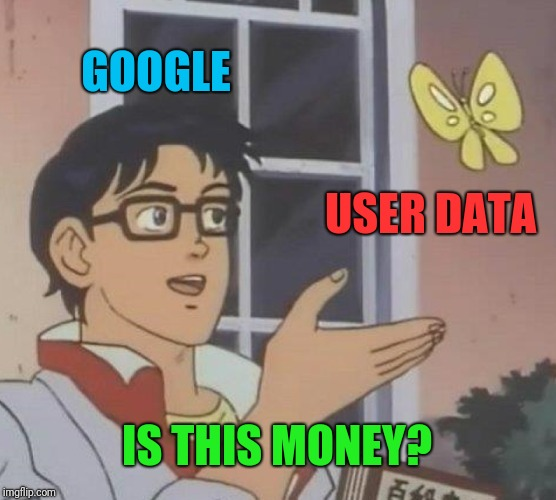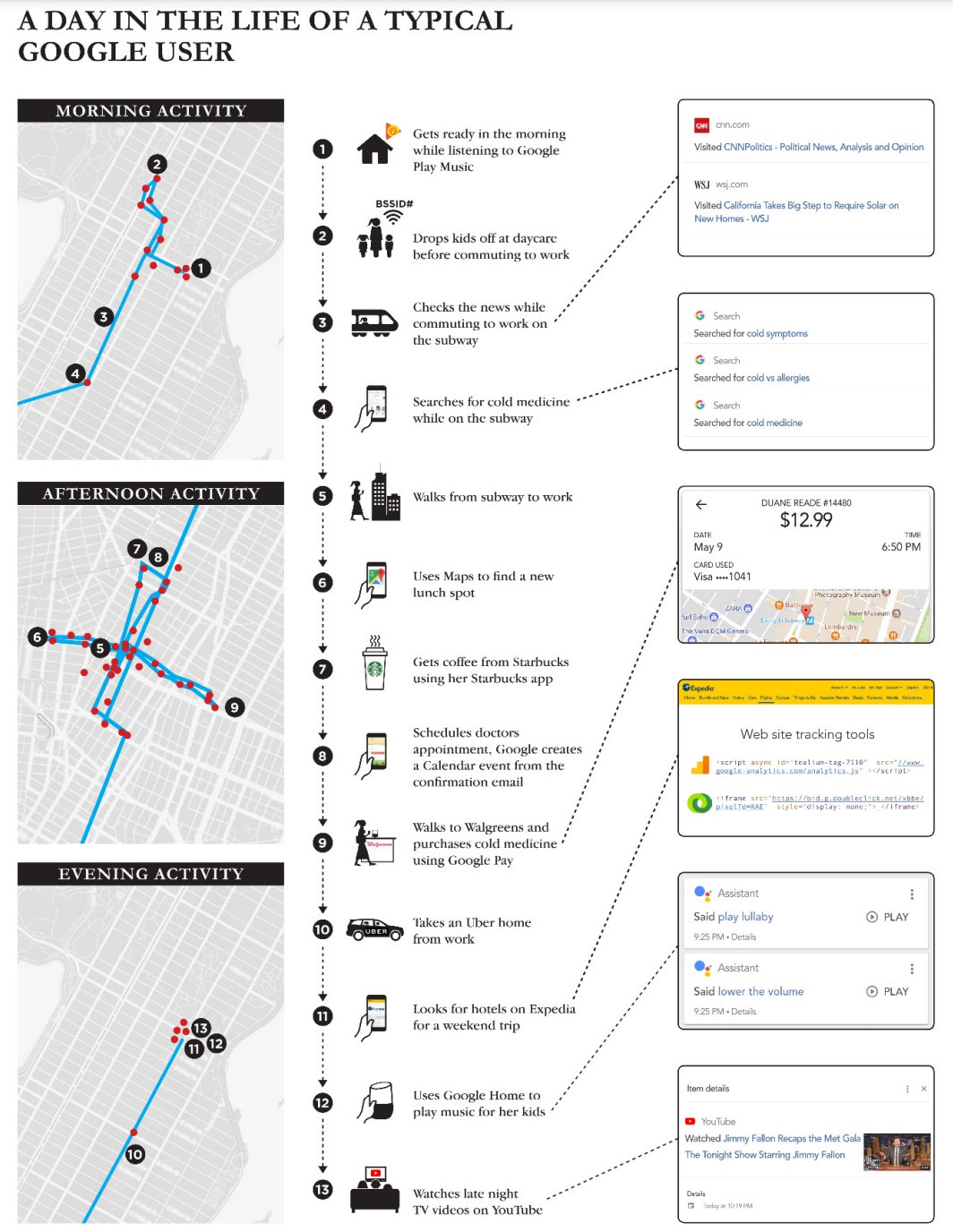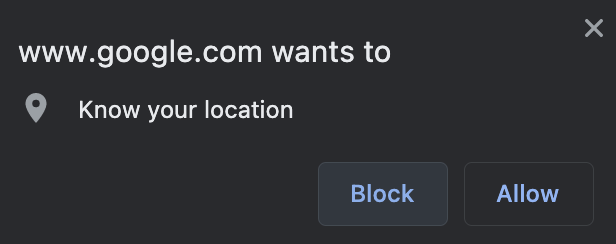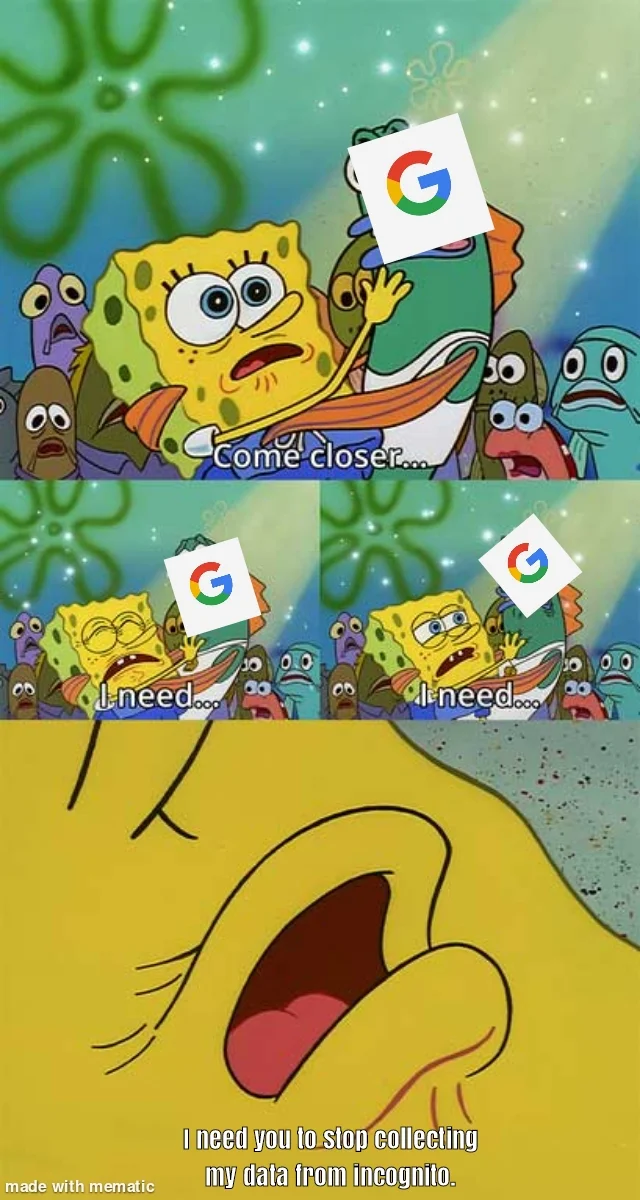Google needs no introduction. Odds are, you’re reading this article either on their browser (Chrome) or mobile platform (Android), and you’ll probably end up going down a YouTube rabbit hole later tonight - but most people don't realise just how much of themselves they are selling to Google to access those products.

You're the Product
Google products are ridiculously commonplace and popular, and cover a wide range of services (making the DeGoogle process a pain in the ass), but ultimately, Google is an advertising agency whose main deal is to make money from any data it collects about its users. It is surprising to some how many cases of illegal data-collection activities they have been reprimanded for over the years, including most recently being sued by Washington DC and 3 US states (Indiana, Texas, Washington State) over deceptive location tracking. There is a juicy 2018 study detailing the unbelievable extent of active and passive snooping done by Google. Pictured below is a small example to illustrate the data collected in an average day:

Collecting this much information essentially amounts to surveillance. Much of this data is sold to third parties with the promise of being anonymous; however, there have been cases where people have been identified and targeted maliciously over similar such 'anonymized' information.
DeGoogle Your Life
DeGoogling, often a big part of Privacy Threat Modelling, is an arduous road paved with inconvenience, but it's worth the effort if you are concerned about your online privacy; just think about all of your personal details in the hands of a gigantic advertising agency that only cares about personal profit. If that thought understandably makes your butthole tighten a little, I have put together a list of privacy-focused alternatives to popular Google products just for you:
GMail
Canary Mail / Fairemail / FastMail / K-9 Mail / Mailbox.org / Mailvelope / Thunderbird / Tutanota
Google Chrome
Brave / Bromite / Firefox / Librewolf / Tor / Ungoogled Chromium / XBrowserSync (bookmark sync tool)
Google Calendar
DAVx⁵ / Etar / Lightning (part of Thunderbird) / Nextcloud / Peergos / Tutanota
Google Drive
Filen / Nextcloud / Sia / Sync.com / Syncthing
Google Docs/Sheets
Collabora (part of NextCloud) / Cryptee / CryptPad / Etherpad / Libreoffice Online
Google Maps
Benmaps / OpenStreetMap / Organic Maps
Google Photos
Ente / Piwigo Android / Stingle Photos / Cryptee
Google Search
DuckDuckGo / MetaGer / Mojeek / Searx
Google Translate
Apertium / DeepL / LibreTranslate
YouTube
Free Tube / LBRY / NewPipe
Making the switch over to the above alternatives will go a long way toward increasing your privacy, and limiting your data from being harvested and sold. It is always a good idea to go through the privacy policy and check if the level of privacy offered by the service suits you. We highly recommend researching any recent changes to privacy policies or privacy-related incidents with the services, as things can change at any time.
Support Open Source Software
Unlike Google’s proprietary products, many of the alternatives listed above are examples of open-source software. Open-source means that the source code of a software is publicly shared, which allows users to see what the software is doing behind the scenes, and in many cases help improve its design. This is contrary to proprietary software, where the software is under restrictive copyright licensing, and the source code is hidden from the users. It is imperative to support and spread the word about such privacy-centric open-source software, so that they can be continuously improved upon.
F-Droid is an open-source app store for Android that you can use to install open-source apps (including most of the apps recommended above). Unfortunately for you Apple users, iOS is hugely locked down, as their intention is to have complete control over what software can be installed on their devices. You can get around this by ‘jailbreaking’ your Apple devices, but you do so at your own risk, as it will void your device's warranty. Cydia is a popular app store for jailbroken Apple devices, providing both open source and proprietary apps.
Using Google With Caution

Other than switching over to the alternative services listed above, the best way to limit Google in your life is to use any other platform than Google’s Android, such as Apple, or Linux. However, depending on your technical expertise, budget, laziness, and qualms about Apple’s decision to scan photos stored on iPhones in the US for images of child sexual abuse, switching away from Android and Google products may be unattainable for you. Fret not, there are still ways to limit how much personal data Google harvests from you!
The following links allow you to control some information Google collects about you on the web:
- https://myaccount.google.com/activitycontrols
- https://security.google.com/settings/security/permissions
- http://www.google.com/settings/ads/
- https://www.google.com/maps/timeline
- https://myaccount.google.com/purchases
These privacy-focused web browser extensions can help reduce your online activity being tracked, and reduce targeted ads:

You can stop Google tracking on Android:
- Go to Settings. Type in “Activity controls” in the search box and tap it when it comes up.
- If you have more than one Google account, select the one you want to manage.
- Here, you can turn off or pause the monitoring of various activities, and set up auto-delete of activity older than after 3, 18, or 36 months.
You can also stop location tracking on Android:
- Go to Settings and select Location.
- In the Location page, you can toggle turning the location service on or off.
- Depending on your phone manufacturer and Android version, you will have a few additional location service categories that you can toggle on or off (you can click on them to learn more about what each location service is used for):
- Google Emergency Location Service
- Google Location Accuracy
- Google Location History
- Google Location Sharing
- Wi-Fi scanning
- Bluetooth scanning
You can find out which apps use location tracking and choose to disable it:
- Go to Settings and select Location
- Click on App Permissions (or App location permissions) to find a list of apps that have permission to access your location.
- Tap on any app to change the permissions.
And finally, you can delete location data for your timeline through Google Maps:
- Open your Google Maps app.
- Tap on your profile icon in the upper left corner.
- Tap on “Your Timeline”.
- Select the three dots in the upper right corner and tap on “Settings and Privacy”.
- Scroll down to “Delete all Location History”. You will get a pop-up stating that you understand that some of your apps may not work properly. Check the box and select “Delete”.
Don't Forget the VPN
Hopefully, this article has helped make you aware of just how predatory Google can be, and has given you a good idea of what you can do to limit its influence in your life. Before I sign off, and while we're on the topic of protecting and enhancing your privacy, I should remind you that anyone that is serious about their internet privacy should at the very least be using a VPN. There are many out there, some have shady practices themselves, and in general, it can be difficult to choose, but it's worth doing a little research and getting one set up - it'll go a long way to protecting your personal data from falling into the wrong hands.




